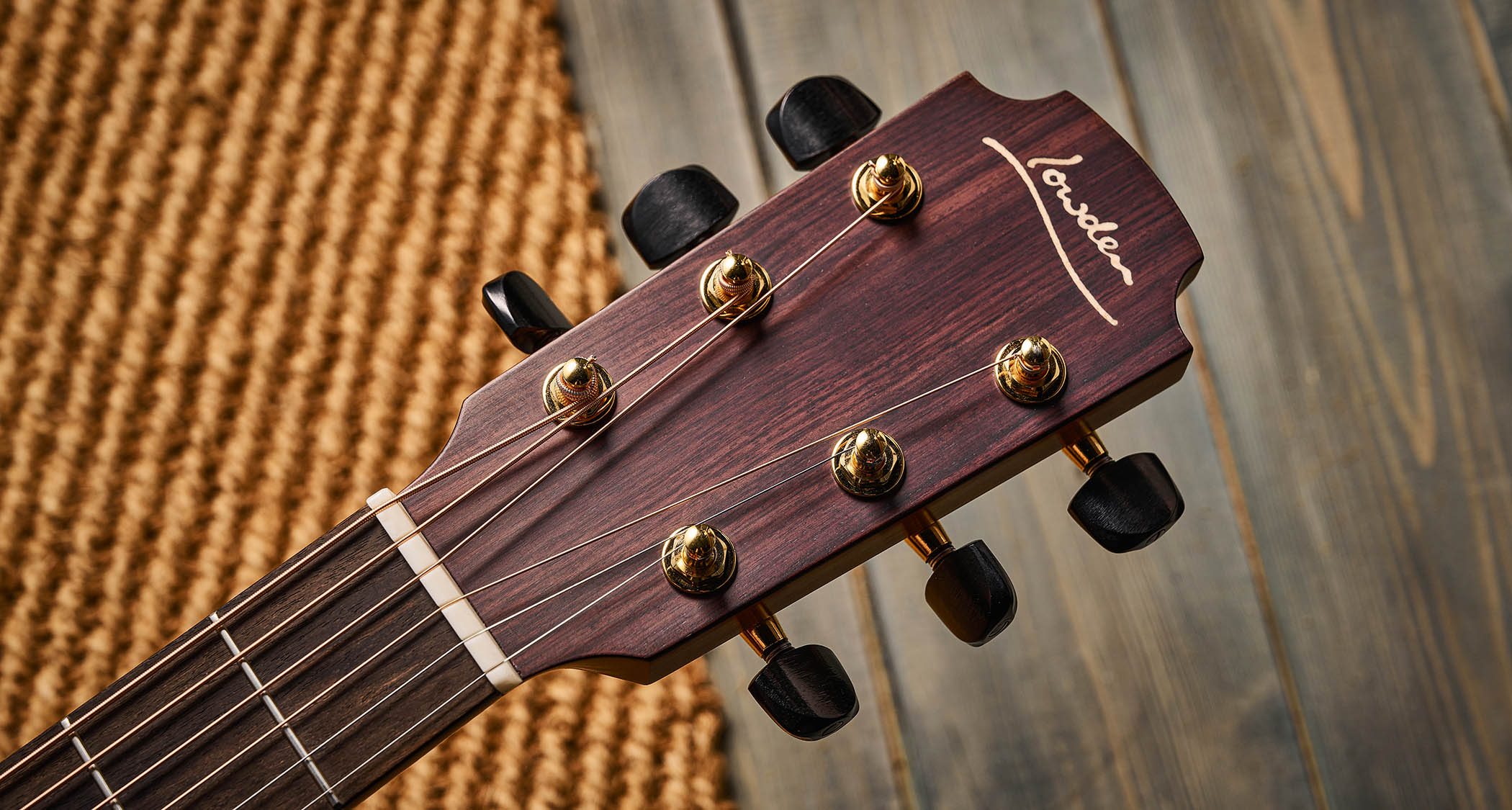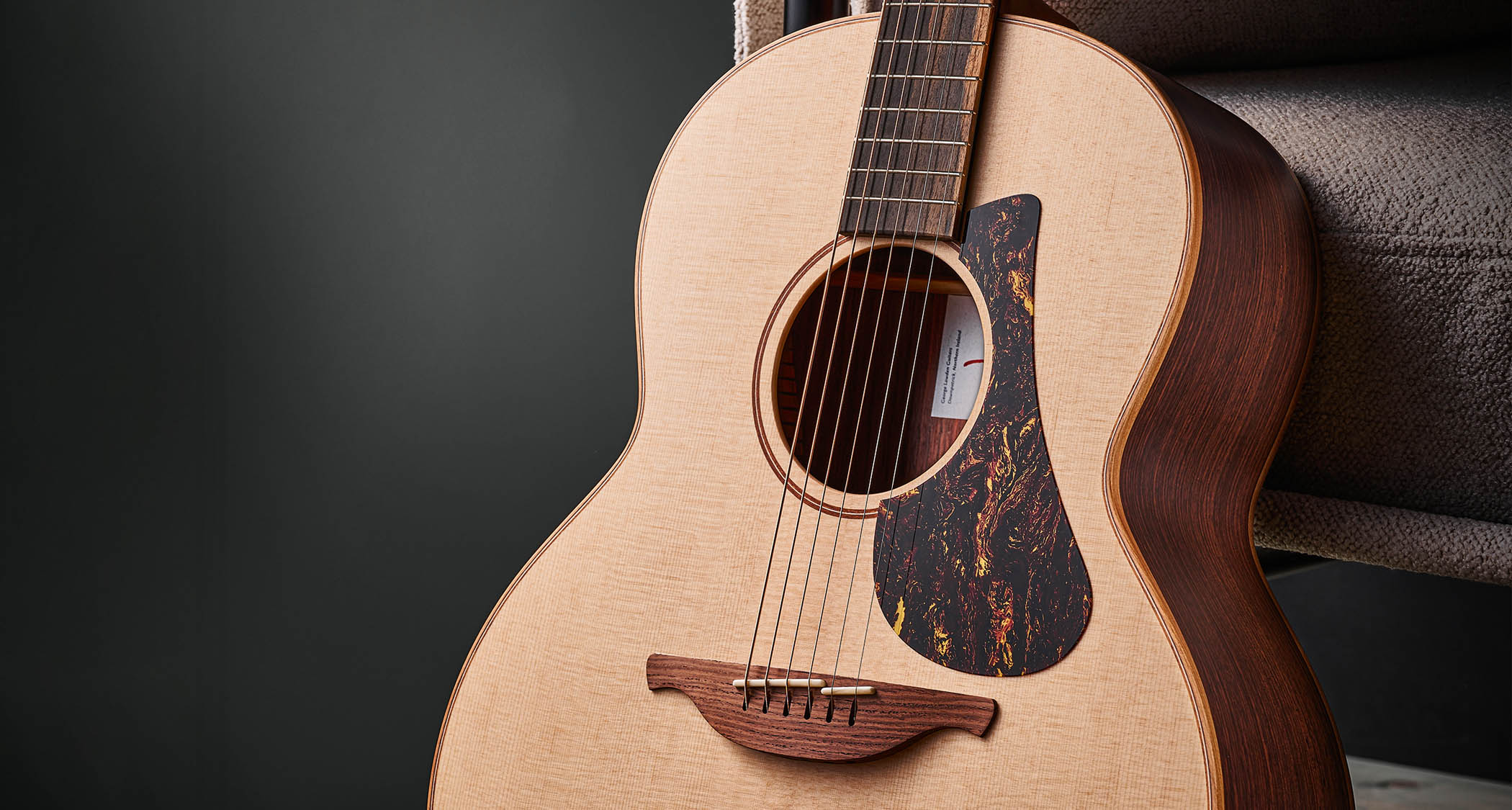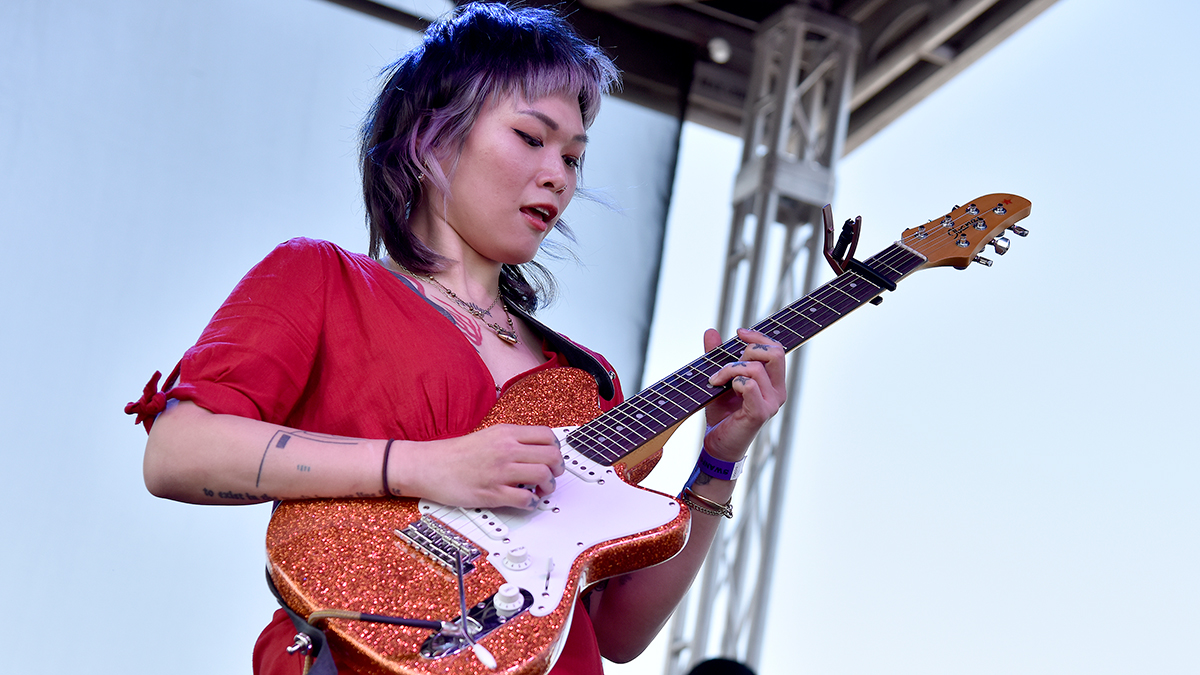“Developed so that players will always have the assurance of knowing where their guitar is, and what condition it's been kept in”: Lowden puts AI in its acoustics to help players better look after their guitar – and track it down when lost or stolen
An in-built sensor will monitor temperature, humidity, and location to support players in ensuring optimum performance at all times

All the latest guitar news, interviews, lessons, reviews, deals and more, direct to your inbox!
You are now subscribed
Your newsletter sign-up was successful
Lowden Guitars is trying to prove that AI in the music industry doesn't always have to be something to be scorned at. It has begun building guitars with a built-in sensor to help players take better care of their instrument.
The Northern Irish firm counts Ed Sheeran – who was responsible for the creation of its GL electric line – Eric Clapton, and Mark Knopfler among its ranks of players, and is the first guitar builder to embrace AI in such a manner.
The smart sensor will help players track guitar wellbeing traits, including temperature, humidity, vibration, and location.
A partner app, Mylowden, then acts as a database for stats tracking. The software, built in collaboration with Storm Reply, ubloquity, and Amazon Web Services, will also offer a gateway to warranty and insurance services and pointers for better nurturing the instrument.
“I'm very excited to know that this program has been developed in conjunction with AWS in the hope that guitar players will always have the assurance of knowing where their guitar is, and what sort of condition it has been kept in,” says founder George Lowden.
Data provided may prove an eye-opener for some players: that their guitar stand is in a less-than-ideal spot, for instance, and the location element – which involves GPS tracking – could be a huge aid in tracking down stolen gear.

By serving “health information” in real time, Lowden believes it is making the instrument “easier to play” and “sound its best” at all times.
All the latest guitar news, interviews, lessons, reviews, deals and more, direct to your inbox!
“Lowden is the first guitar maker to embrace this type of technology in a way that enables musicians to grow their understanding and connection with their instruments,” adds Managing Director Aaron Lowden, who is George’s son.
“From practical information about their instrument, including climate, any knocks it could potentially take during travel, and documenting key services or repairs, key moments in playing, songwriting, collaborating, and performing, this technology will enhance the Lowden ownership experience.
“[The technology] is really limitless, and new features will be rolled out over time.”
As more companies embrace AI technology, it’s clear it is here to stay. Positive Grid has been using it to help players craft guitar tones, while self-generating overdrive pedal plugins, AI EQ sculpting, and gear shopping assistants also represent novel ways that AI has been incorporated into the world of guitars.

These ideas show that AI isn’t solely here to steal your riffs, and, in the case of Velvet Sundown, rack up staggering amounts of streams in a dystopian threat to human-powered artists.
There’s no official word on when these guitars will hit the market, which guitars the tech will feature in, and how much they’ll cost, but it’s clear the firm is marking new ground. It’s an interesting project, and Guitar World will be keeping a keen eye on its progress.
A freelance writer with a penchant for music that gets weird, Phil is a regular contributor to Prog, Guitar World, and Total Guitar magazines and is especially keen on shining a light on unknown artists. Outside of the journalism realm, you can find him writing angular riffs in progressive metal band, Prognosis, in which he slings an 8-string Strandberg Boden Original, churning that low string through a variety of tunings. He's also a published author and is currently penning his debut novel which chucks fantasy, mythology and humanity into a great big melting pot.
You must confirm your public display name before commenting
Please logout and then login again, you will then be prompted to enter your display name.

